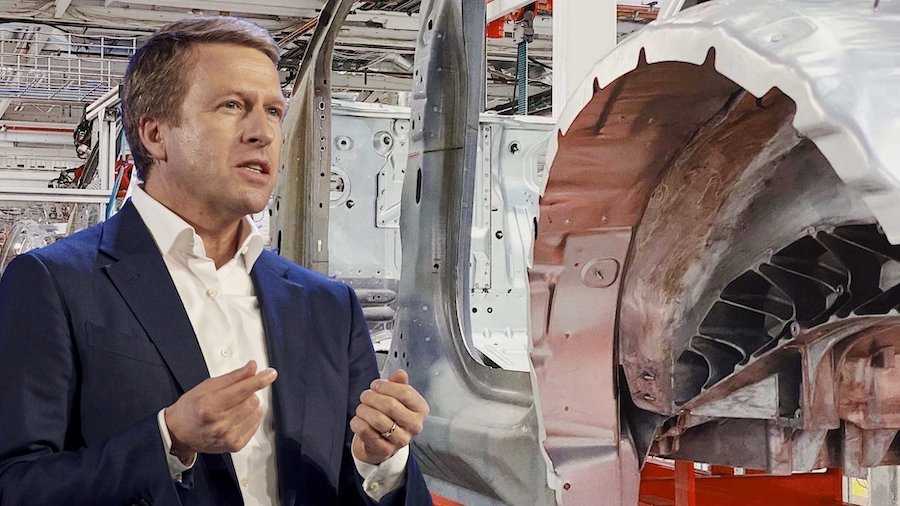BMW's CEO Says Tesla's Massive Castings Are Not Something They Would Follow

The German automaker’s CEO disputed not only the name Tesla gave them but also the belief that they would represent a manufacturing edge, as Elon Musk often repeats.
Oliver Zipse was answering a question made by Jose Asumendi, a JP Morgan analyst. After Asumendi made his question, Maximilian Schöberl wanted to make sure they understood it. BMW’s executive vice president for Corporate Communications & Governmental Affairs asked the analyst what he meant with "giga" casting.
It took a while for Schöberl and the other executives to understand what Asumendi said. The analyst even made it a little more challenging when he said it was “casting, with K,” but the BMW team eventually understood what the question was about. Zipse said he would answer it.
The first thing the BMW CEO mentioned was that they would not call that “giga casting.” For Zipse, these parts are made through “a normal casting process.” The really demolishing bit of the BMW CEO speech came when he said that “there is no economic reason to have very large integrated parts in these vehicles.”
According to Zipse, increasing cast parts “to a very large extent has substantial remedies, which we don’t want.” Being more specific, the BMW CEO said the company would be primarily concerned with repairability costs: BMW thinks they would get “too expensive.”
Curiously, Volkswagen and Mercedes-Benz already said they would also adopt large casting parts in their future electric vehicles. Zipse is not sold on the alleged advantages. Still, according to the BMW CEO, the “partially lower manufacturing cost is overcompensated by casting costs.”
Zipse killed the idea once and for all by saying that BMW would not use these large components as a strategy. “We see much more efficient ways to build a car body,” the BMW CEO said to conclude the conversation.
Tesla fans defend the massive castings as a way to simplify manufacturing and improve built quality. For them, any crash that affects the castings would already impose a write-off title on any EV. Automotive experts are not so sure about that. They often remind us that castings do not bend when they crash: they break, which also raises concerns about crash safety.
Related News
